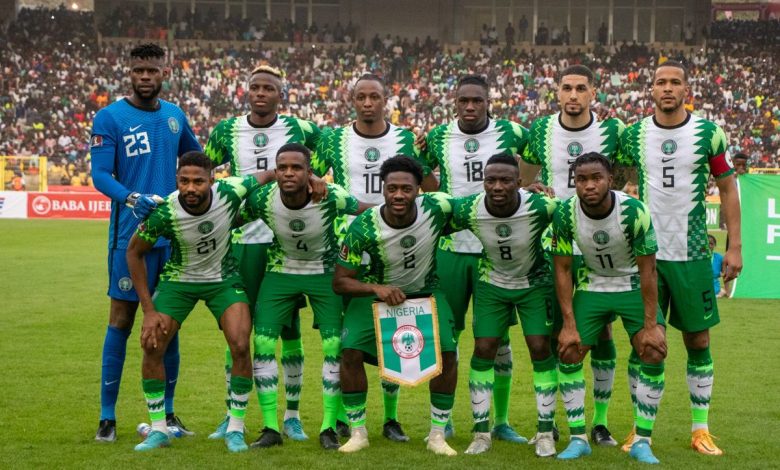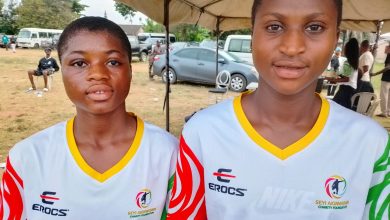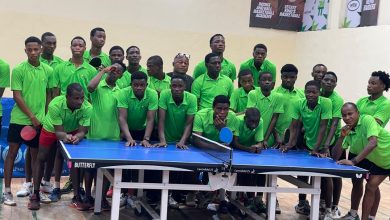Super Eagles to host Leone Stars, await CAF’s decision on São Tomé/Mauritius

Following Tuesday night’s draw for the qualification series of the 2023 Africa Cup of Nations, three –time champions Nigeria must await the decision of the CAF Disciplinary Board for which of São Tomé & Príncipe and Mauritius would be the fourth team in their Group A of the series.
The Super Eagles already have a home game lined up for the first week of June against the Leone Stars of Sierra Leone, who were also in their qualifying pool for the last AFCON tournament in Cameroon. Nigeria and Sierra Leone made it out of that pool, leaving the Squirrels of Benin Republic and the Crocodiles of Lesotho biting their fingers.
This time, the Eagles must negotiate a Group A that has the Leone Stars as well as the Wild Dogs of Guinea-Bissau, whom the Eagles defeated 2-0 in the grup stage of the last finals in Cameroon, thanks to goals by Sadiq Umar and William Ekong.
Thenff.com learnt from the CAF headquarters on Wednesday that Mauritius have a pending protest against São Tomé and Príncipe, who won their preliminary qualifying fixture, insisting that one São Tomé player had tested positive for covid-19. São Tomé & Príncipe continue to dispute this assertion.
“The matter became somewhat more interesting because the player at the centre of the controversy is the one that scored the only goal of the match,” said our source.
This means that after hosting Sierra Leone in Nigeria, the Super Eagles would have to fly to either São Tomé or Port Louis for their Matchday 2 encounter. The window for these two matches is 30th May – 14thJune.
In September, with the window for Matchdays 3 & 4 being 19th – 27thSeptember, the Eagles will tango home and away with the Wild Dogs of Guinea-Bissau. The Matchdays 5 & 6 are within the period 20th – 28th March 2023, and will see the Eagles go away to Freetwon before returning home to square up to either São Tomé and Príncipe or Mauritius.
The two top-placed teams in each of the twelve groups at the end of the qualifying campaign will qualify for the 34th Africa Cup of Nations finals taking place in Cote d’Ivoire next year summer. However, hosts Cote d’Ivoire are definite qualifiers from Group H, meaning only one of Zambia, Comoros Islands and Lesotho will make it to the finals no matter the results garnered by the Ivorians in the race.
ALL THE GROUPS
Group A: Nigeria, Sierra Leone, Guinea-Bissau, São Tomé and Príncipe/Mauritius
Group B: Burkina Faso, Cape Verde, Togo, e-Swatini
Group C: Cameroon, Kenya, Namibia, Burundi
Group D: Egypt, Guinea, Malawi, Ethiopia
Group E: Ghana, Madagascar, Angola, Central African Republic
Group F: Algeria, Uganda, Niger Republic, Tanzania
Group G: Mali, Congo Republic, The Gambia, South Sudan
Group H: Cote d’Ivoire, Zambia, Comoros Islands, Lesotho
Group I: DR Congo, Gabon, Mauritania, Sudan
Group J: Tunisia, Equatorial Guinea, Libya, Botswana
Group K: Morocco, South Africa, Zimbabwe, Liberia
Group L: Senegal, Benin Republic, Mozambique, Rwanda





